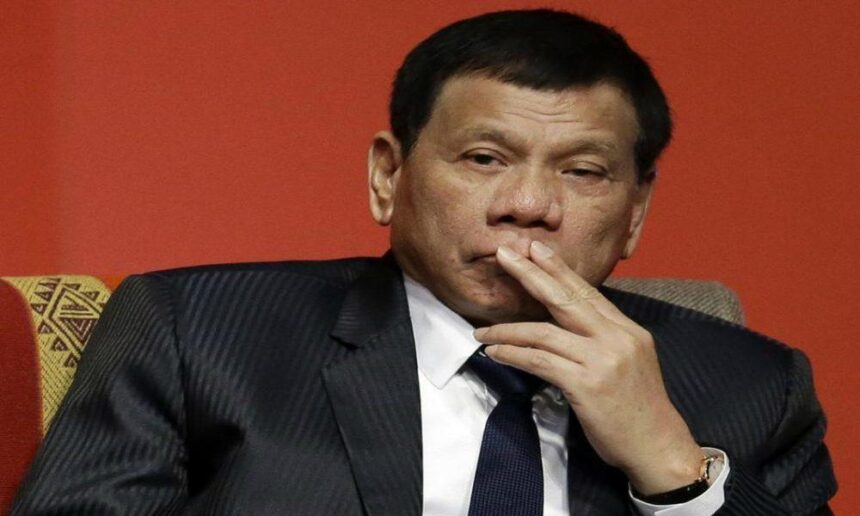Rodrigo Duterte, who spent 20 years as Mayor of Davao City, which is the capital of the Philippines’ second largest island Mindanao, was elected president of the country with 39 per cent of the vote in 2016 when he was 71 years old. He claimed to have turned the drug-ridden, poor city of Davao, which is home to the majority of the country’s 10 million Muslims, into the ninth safest city in the world by killing off criminals. People starting calling the police ‘the death squad’.
During the presidential election, Duterte promised to wage war against drugs and transform the Manila-centered empire into a federal system. He started putting these words into action as soon as he was inaugurated. Within six months the police shot 7,000 people to death for drug-related reasons, and stopped disclosing statistics on such deaths to the public.
War on drugs
Human Rights Watch, an international non-governmental organization, released a report that looked into 24 incidents, which resulted in 32 deaths, involving Philippine National Police personnel between October 2016 and January 2017. The report suggested that the police reported that it was self-defense when unarmed drug suspects who were kept in custody were shot to death. In addition, the report mentioned that no one conducted any investigation into the cases where police officers killed people and then put guns and packets of drugs next to the bodies for recording in formal registries.
Allowing police, military personnel, and even vigilantes to shoot drug dealers and drug users to death has resulted in sending drug cases underground, increasing the extent of drug-related infectious diseases, and only reducing small-time, petty crimes. The reputation of DU30 (given his name Duterte was pronounced similarly as Du-thirty), which is the name of the president’s campaign, has kept increasing countrywide and obtained support from 80 per cent of people living in poverty.
However, an underlying principle of democracy has been lost as convictions are no longer made in courtrooms or by a judge. It is now law enforcement who decides who needs to be punished. This has fueled fear among people. Some are using the war on drugs as an excuse to eliminate their political opponents or anyone they don’t like by shooting them even in a public location.
During the two years’ period when Duterte was President, a total of 10 mayors and 6 deputy mayors were killed. Four of them were in prison and the rest were on duty when they were shot to death. President Duterte has promised to continue the war on drugs until 2022 when his term finishes. He has recently announced that he has little care about the pressure coming from human rights organizations, and suggested that the Philippines can exit the United Nations and found a new international community together with China, Russia, and some African nations.
On the way to becoming a federal state
The Philippines currently has a population of 104 million, and an economy of 305 billion USD with GDP per capita at 3,000 USD. Twenty-one per cent of their population are living in poverty in this country made up of 7,641 islands with a total land area of only 343,000 square km. Living standards have become significantly different between regions due to variances in geographical location, population density, and infrastructure development. For this reason, politicians have been trying to make amendments to the current constitution, which was enacted in 1987, in order to introduce a more balanced administrative structure, reduce centralization of taxes and spending rights in Manila, and provide more funds to rural regions.
This time, they seem to have a good chance to accomplish the changes. Politicians are trying to use Duterte’s push and Congress members’ efforts to not hold the 2019 House of Representatives elections, and organize a plebiscite among the people instead. The intention is to transition the Philippines from a presidential system to a parliamentary system and from a republic to a federal state. Although the Senate is to retain its 24 members who don’t represent any specific territory and the House of Representatives is to keep its 297 members (238 from constituents and 59 from political parties), it is proposed that the Senate will have two senators from each region or territory.
On President Duterte’s initiative, a consultative committee was established to make amendments to the constitution. If everything goes their way, a plebiscite will be held and preparations will be made to adopt a federal system. This would mean the Prime Minister would be the head of state in 2022. The term is proposed to be four years, and the term limit will be two terms.
Political analysts consider that all these proposed changes would lead to Duterte spending six years as President as per the current constitution, and then serving as Prime Minister for eight years. This would mean he would be the head of state for 14 consecutive years, giving birth to another Marcos.
The results of a survey conducted in June this year showed that 67 per cent of respondents didn’t like the idea of becoming a federal state. This was translated by the government as a sign of weak public awareness on a federal system, so a lot of work needs to be done to raise awareness and provide information to people.
In any event, the Philippines is on the way to becoming another example of how one individual can garner political power and change the constitution under the guise of a referendum only to keep the power they have. The leaders of Russia and China have also been on the same path, and have held power for decades. Another example, Azerbaijan, can be found in my previous column.
Ahead of making any change to the constitution through a referendum, the people of Mongolia need to study these historical cases and look at the issues from all angles.
2018.07.18
Manila
Trans. by B.Amar
Philippines’ President Rodrigo Duterte
Image source: www.nationalpost.com







